Textile Design
BA (Hons)
Undergraduate degree - single honours
- UCAS codes: Institution B20, Course WW27 or WW29 (with professional placement) or WW30 (with integrated foundation)
- Textile Design - Programme Document
This course isn't currently open to applications
For more information, please contact our Admissions team on +44 (0)1225 876 180 or admissions@bathspa.ac.uk.
A dynamic and exciting degree for those wanting to explore textile design in fashion, interiors and product.
- Engage with professionals through 'live' industry briefs and placement opportunities in the UK and abroad.
- Immerse yourself in our strong studio culture and visit specialists, trade fairs, exhibitions and museums.
- Our graduates have been employed by companies including Conran, Selfridges, Joules, Phase Eight, Harrods and Anthropologie.
We provide ambitious students with a dynamic, practical, and theoretical design education, supported by industry networks and directed towards the development of a creative career or advanced research in the textile discipline.
Develop your creativity within the broad and complex field of traditional and contemporary textile design, through intellectual enquiry combined with aesthetic sensibility.
Find out more about our students' work through the Textile blog, Padlet, Pinterest and Instagram.
#1 in South West
and #4 in UK for Graduate Prospects in Fashion Textiles (Guardian University Guide 2026)
#1 in South West
and #6 in UK for Continuation in Fashion and Textiles (Guardian University Guide 2026)
#2 in South West
in the overall rankings for Fashion and Textiles (Guardian University Guide 2026)
#2 in South West
for Continuation in Art and Design (Complete University Guide 2026)
Study options
The preliminary and intensive Integrated Foundation in Art and Design is designed to develop your ideas, skills and confidence in readiness for progressing to year one of your degree programme.
This year provides you with the opportunity to identify, apply for, and secure professional experience, normally comprising one to three placements over a minimum of nine months. Successful completion of this module will demonstrate your ability to secure and sustain graduate-level employment.
By completing the module, you'll be entitled to the addition of 'with Professional Placement Year' to your degree title.
Before your Professional Placement Year, you'll work to secure your placement, constructing a development plan with your module leader and your placement coordinator from our Careers and Employability team.
On your return to University for your final year, you'll submit your Placement Portfolio, detailing your development on your placement, for assessment.
“Tutors were happy to answer all of our thousands of questions! They encourage new ways of thinking, pushing every element of the design process: drawing, colour and innovation."
Chloe Gregory and Annie James, Textile Design for Fashion and Interiors graduates
What you'll learn
We offer a strong studio culture in which students are inspired to express their design direction, exercising initiative and personal responsibility.
Individually negotiated student-led lines of enquiry are encouraged and supported by a wide range of thorough contextual underpinning and professional practice, which includes live industry briefs, competitions, forecasting and external exhibition opportunities. Students demonstrate self-direction in extending networks for creating work-based learning opportunities and gaining internships.
We intend to equip students with the necessary research, practical, technical, aesthetic and problem solving skills to develop and adapt their emerging practice for their future careers, which include team working, an appreciation of diversity, reflection and self-evaluation and the capacity to work independently to determine personal future learning needs.
Year one
In Year One you start to cultivate your observation, thinking and drawing skills into your individual style. You begin to explore the field of textile design and its contextual framework. You learn skills in understanding colour, fabric, yarns, materials and dyeing. Taught techniques in embroidery, print, knit and construction provide the foundation to your design development.
Year two
In Year Two you start to explore your potential focus engaging with modules as a textile designer for either fashion or interiors, and begin committing to areas of textile specialisms. Your facility for thinking, writing and analysing is expanded through professional and contextual studies. To establish an understanding of your style and direction, you tackle a combination of projects looking at advancing textile techniques and understanding your career options, these include competitions, live briefs and exhibitions.
Year three
In Year Three you undertake a dissertation and state your identity as a textile designer through an initial exploratory personal studio module. The professional context module leads all students up to midway through the academic year, and at this point as a BA (Hons) student you undertake the final 60-credit module leading to a degree show and graduation.
The module assessments demonstrate how well students have performed in tackling the intended learning outcomes, and is measured against grade criteria.
Throughout the module students will receive formative feedback through individual and/or group tutorials, peer seminar sessions and group critiques. In many cases this feedback is received both verbally and in a written format.
Students are informed about the ways that marks/grades and feedback are provided by the marking tutor(s), and they receive written feedback on learning achievements against the assessment criteria for a module assignment.
The feedback aims to enable students to see how to improve or develop particular aspects of their work, and students receive the summative feedback along with the marks within three weeks of the completed module submission date.
As you progress through the course, teaching methods will change to deliver the intended learning outcomes. In general, Textile Design teaching involves methods such as:
- Studio engagement
- Technical demonstrations
- Practical workshop introductions
- Taught practical sessions
- Directed or self-directed projects
- Active participation through seminars, group work and directed learning
- Engagement in using both hand and digital processes
- Lecture series
- Individual and group tutorials
- Study trips and gallery visits
- Personal presentation, display and documentation of work
- Self-directed research and study activities.
As a Textile Design student, you'll benefit from:
- Extensive personal support from a friendly and caring staff
- A good practical and theoretical education
- Extensive Art and Design facilities
- Availability of careers advice and support.
To find out more about how we teach and how you'll learn, please read our information on Your Learning and Teaching at BSU.
Course modules
This course offers or includes the following modules. The modules you take will depend on your pathway or course combination (if applicable) as well as any optional or open modules chosen. Please check the programme document for more information.
Modules for the integrated Foundation year option are listed on the Integrated Foundation Year for Art and Design page.
At BSU, our courses are designed to equip our graduates with the knowledge and skills they’ll need for the real world. To do this, we are continually improving our courses by responding to feedback from students and other stakeholders. This may mean changes may be made to the curriculum. You’ll always be given notice of any such changes
For more information on how we approach such changes at the university, please read our policies on
- Drawing and Colour for Design, Repeat Pattern with Digital Skills
- How to think like a Designer: Design, Culture and Context
- Core Textile Skills
- History and Context: Introduction to Material and Visual Culture
- Textile Industry Partnership
- Professional Practice for Textile Design
- Textile Focus
- Advanced Textile Skills: Exploration and Experimentation
- Textile Futures: Material and Process
- Design: Contemporary Issues and Practice
- Professional Placement Year
- Business and Professional Development with Portfolio Presentation
- Refining and Resolving your Practice: Preparing to Launch
- Refining and Resolving your Practice: Professional Portfolio
- Visual and Material Culture: Final Study
.png)
.png)
.png)
.png)
.jpg)
Opportunities
As part of your degree, you could study abroad on a placement at one of Bath Spa’s partner universities.
The course is globally aware and enriched by the opportunity to attend international trips. There are visits to specialist studios, trade fairs, exhibitions and museums. Please note that you may have to pay for some of these study visits.
Professionals engage with the students setting ‘live’ external briefs, through the visiting lecture programme, and by leading master-classes or workshop activities.
We expect our students to be active in gaining work-based experience in addition to the learning opportunities relating to employability throughout the course. Generally, paid-internships are to be undertaken in the final weeks of your second year or during the summer academic break between your second and final years.
Past opportunities have included the following: Alexander McQueen, Stella McCartney, Bay & Brown, Michael Angove, Calvin Klein,Ted Baker, Nina Ricci, Paperclip, Tracy Kendall, Sam Pickard, Clarissa Hulse, Jenny King, Whiston and Wright, Karen Nicol, Milena, Chloé, Nicole Farhi, Jessica Ogden, Zandra Rhodes, Dewhurst, Philip Treacy, Ling Design, Hallmark and Tiger Print, Mary Katrantzou, Holly Fulton, Selvedge Tent London, and/or solo exhibitions.
Textile Design graduates have secured employment in a range of career directions, worked for design studios and design companies, set up their own businesses or developed related careers within retail and the broader fashion and interior industries. Our graduates have also continued with their studies, undertaking MAs, PGCEs or PhDs.
Employers of graduates from the BA (Hons) Textile Design include:
- Liberty
- The White Company
- Bay & Brown
- Lyle & Scott
- Keeler Gordon
- Debenhams
- G.M Syntex
- Relish Clothing
- IVO Prints
- Selfridges
- Boden
- Joules
- Marks & Spencer
- Hand and Lock
- Hallmark
- Anthropologie.
We’ll encourage you to participate in competitions. Here are some of our students' successes:
- Shortlisted for the Lewis and Wood Wide Width Wallpaper Competition
- Silk Bureau Competition
- The Worshipful Company of Framework Knitters Award in recognition of the high standard achieved in a project related to the knitting industry
- Shortlisted for the national Whittard Tea Caddy Design competition
- The Porthleven Prize
- Our graduates have won:
- The Sanderson Award at New Designers
- John Lewis Loves at New Designers
- Crafts Council Hothouse Award
- Festival of Quilts Award
- Maker Award at SITselect Showcase Exhibition, Cheltenham
If you’re a full-time undergraduate student starting your first year at Bath Spa University, you can apply for the Certificate in Global Citizenship, which you’ll study alongside your degree.
You’ll gain global awareness and add an international dimension to your student experience, and funding is available. On successful completion of the programme, you’ll be awarded a Certificate in Global Citizenship. This is in addition to your degree; it doesn’t change your degree title or results.
Develop a wealth of indispensable digital skills that you can take into your future career. One of only three Adobe Creative Campuses in the UK, we provide all Bath Spa students with access to the full Adobe Creative Suite, giving you the tools to communicate creatively, whatever your course or chosen professional field.
Facilities and resources
As a Textile Design student, you’ll benefit from access to comprehensive digital workshops and specialist art and design facilities, including:
- Our student service point at Locksbrook where you can purchase subsidised art and design materials, hire out equipment for free and collect Library resources
- Access to our well-stocked Library at Newton Park
- Specialist technical workshops across all of art and design
- Access to studio space where you can work on projects and refine your practice
The philosophy of the department is to provide, where possible, the opportunity for you to explore hand techniques, domestic machine processes, industrial machine processes and digital CAD/CAM equipment. The textile equipment in specialist workshops or available to take into the studios include:
- Traditional textile screen printing for fabric and wallpapers
- Fabric and yarn dye range
- Embroidery machines (Juki)
- Knit machines (Brother, Silver Reed, Dubied)
- Laser Cutter (large bed)
Professional placement year
The Professional Placement Year (PPY) provides you with the opportunity to identify, apply for, and secure professional experience, normally comprising one to three placements over a minimum of nine months. Successful completion of this module will demonstrate your ability to secure and sustain graduate-level employment.
By completing the module, you'll be entitled to the addition of 'with Professional Placement Year' to your degree title.
Before your PPY, you'll work to identify roles of interest and secure a placement. The Placements Team will support through timetabled sessions and 1:1 appointments.
As well as completing a minimum of 900 placement hours, you will complete two assessments demonstrating your skill development, growth in professional behaviours and how the PPY has impacted your future career aspirations.
Locksbrook campus
Locksbrook Campus is a Grade II listed building designed by Nicholas Grimshaw in 1976. It has now been transformed into an innovative, open plan space, redesigned to meet 21st century environmental standards, with technical workshops surrounded by flexible studio spaces and large social areas.
Locksbrook has received both a RIBA South West Award 2021 and RIBA National Award 2021, recognising and celebrating what an amazingly inspirational space it is to come together to design, make, do, create and learn in.
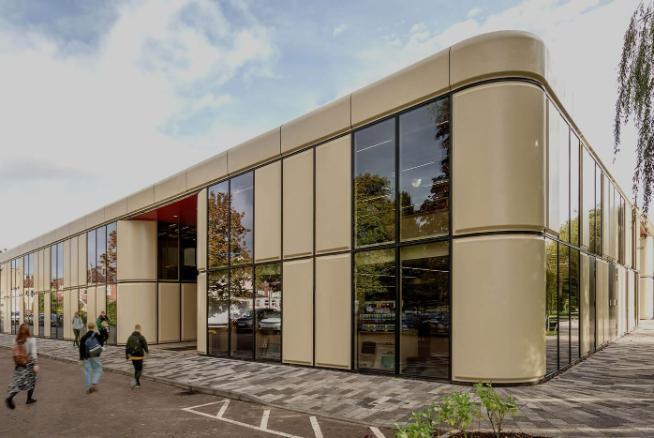
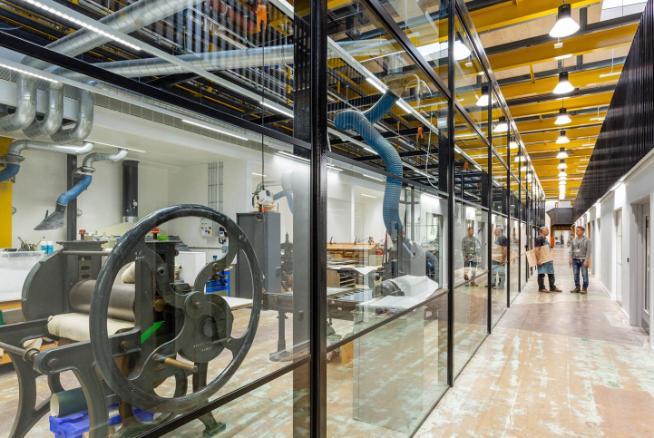
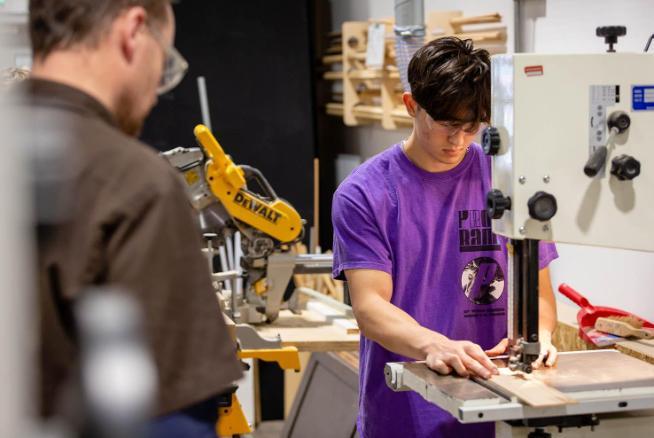
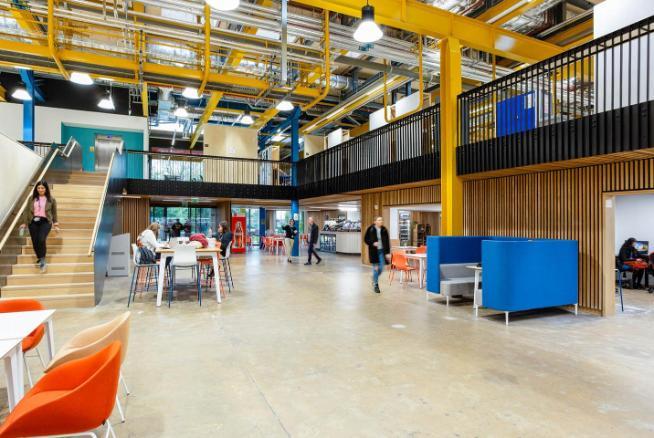
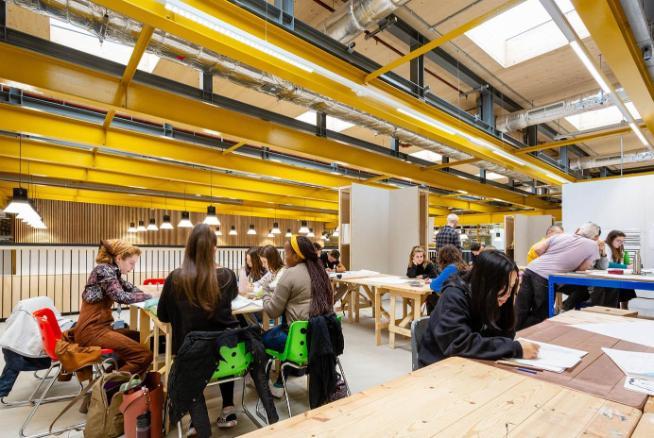
Fees
| Student | Annual tuition fee |
|---|---|
| UK full time | £9,535 |
| UK part time | £4,768 |
| International full time | £19,330 |
Professional Placement Year
During the placement year, the fee is reduced to 20% of the full time fee. This applies to UK and EU/International students.
- UK: £1,905
- International: £3,866
Additional course costs
You may need to pay additional course costs over and above your tuition fees, for example, for specialist equipment or trips and visits. Please check the course Programme Document (linked under the main image on this page) for details of any additional costs. You can also read our Additional Course Costs Policy for further information.
Funding opportunities
Please visit our Funding pages for an overview of the funding options that may be available, including scholarships and bursaries.
Interested in applying?
We accept a wide range of qualifications for entry to our undergraduate programmes. The main ones are listed below:
- A Level - grades BBB-BCC including a Grade B in textiles or Art and Design related subjects.
- BTEC – Extended Diploma grades from Distinction Distinction Merit (DDM) to Distinction Merit Merit (DMM) in a related subject, or evidence of experience in Textiles or Art and Design.
- T Levels – grade Merit preferred in a relevant subject.
- International Baccalaureate – a minimum of 32 points are required with a minimum of grade 5 in an Art subject at Higher Level.
- Access to HE courses – typical offers for applicants with Access to HE will be the Access to HE Diploma or Access to HE Certificate (60 credits, 45 of which must be Level 3, at Merit or higher) together with evidence of experience in Art and Design.
If you don’t meet the entry requirements above, we may be able to accept your prior learning or experience from outside of formal education. See our Accreditation of Prior Learning (APL) page to learn more.
English Language Requirements for International and EU Applicants
IELTS 6.0 - for visa nationals, with a minimum score of IELTS 5.5 in each element.
Course enquiries
For further information about the programme or entry requirements, please email us at admissions@bathspa.ac.uk.
This course isn't currently open to applications. For more information, please contact our Admissions team on +44 (0)1225 876 180 or admissions@bathspa.ac.uk.
Applicants who meet the entry criteria will be invited to interview. You'll also be asked to supply a digital portfolio of your work. More details will be supplied on invitation.
For an insight into the type of work you'll be doing in the first term, follow the TDFI course blog: That's what I want to do.
We recommend that applicants undertake a pre-degree foundation diploma in Art and Design in addition to the qualifications listed above; however we will consider applicants without this.
BA (Hons) Textile Design is a name revision to the programme previously running as BA (Hons) Textile Design for Fashion and Interiors.
Course leaders:
Three year course
With placement year
With foundation year
Masthead image credits: artwork by Natalie Gray, photo by Simon Taylor
- Award
- BA (Hons) Textile Design
- Campus or location
- Locksbrook Campus
- Course length
- Three years full time, or four years full time with professional placement year. Part time available.
- UCAS codes
- Institution Code: B20
- Course Code: WW27; or WW29; or WW30
- Campus Code: A,BSU
Entry requirements
We accept a wide range of qualifications for entry to our undergraduate programmes. The main ones are listed under 'Typical offers' in the main column below. For combined courses, please check both subjects. If your qualification is not listed, please email admissions@bathspa.ac.uk with your specific details.
